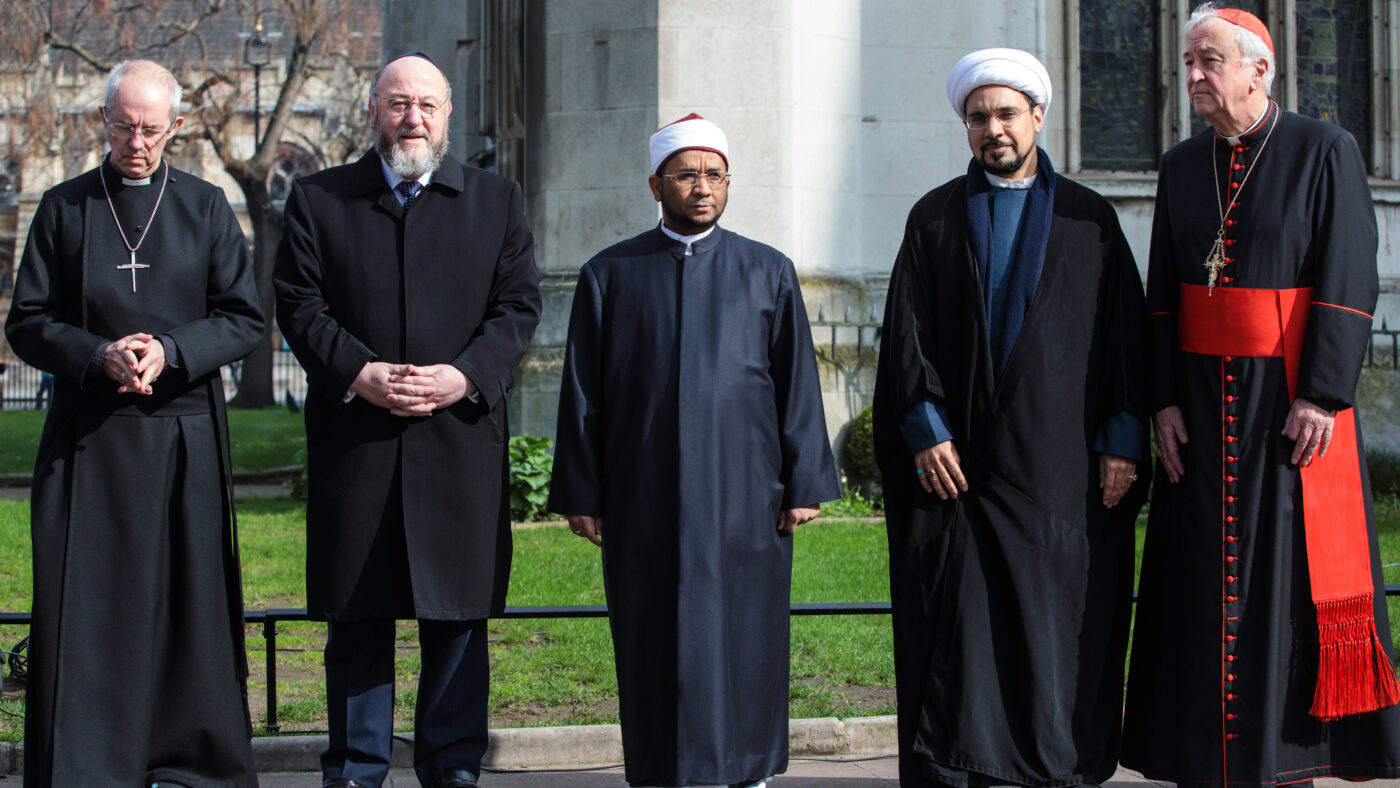The role of faith and religion in British society is one that continues to be much contested.
Britain has witnessed rapid mainstream secularisation – as demonstrated by the fact that from 2001 to 2021, the number of residents in England and Wales who identified as Christian dropped from 71.7% to 46.2% (the first time less than half of the population did so). In the space of a decade, from 2011 to 2021, the proportion of people declaring that they have ‘no religion’ has increased by 12 percentage points – from 25.2% to 37.2%.
Along with the decline of Christianity in Britain, we have simultaneously become more religiously diverse, with non-Christian groups growing as proportions of the population. According to the 2021 census, 6.5% of residents describe themselves as Muslim – that’s 3.9m people. This is a notable increase from the 2011 figure of 4.9% (2.7m people). For the first time in the history of the census, the number of Hindus across England and Wales hit 1m (1.7% of the population). The two nations are also home to over half a million Sikhs (524,000) and over a quarter of a million Buddhists and Jews (273,000 and 271,000 people respectively).
This changing portrait of Britain, and England especially – calls for a mature understanding of the value and power of faith in an advanced diverse society. What has been needed for some time is a professional outfit in the British research community that is genuinely focused on cultivating a shared and wholesome appreciation of faith and spirituality.
The new Institute for the Impact of Faith in Life (IIFL), of which I have been appointed as senior research associate, seeks to position itself in this very space.
One of its key focuses is looking at how religiosity and spirituality are connected to various types of psychological well-being, and promotes happiness, resilience, and optimism. This is especially relevant when one considers the economic challenges at home, especially with the ongoing cost-of-living crisis. The IIFL also plans to investigate how faith and spirituality – including the importance of religious background to one’s personal identity and strength of divine attachment – can provide the basis for social belonging, emotional security and general outlooks which allow individuals to thrive and withstand the challenges that inevitably come with operating within the UK’s competitive market economy.
The positive inter-relationships between faith, attitudes and work remains an underdeveloped area of research. This is certainly the case in Britain, possibly reflecting an atheistic-leftist bent in the academic sector. However, in the United States – a nation which separates church and state but also where faith plays an integral part in public discourse – there is a burgeoning strand of research which suggests that the relationship between faith and economics deserves more exploration.
In their book The Wealth of Religions: The Political Economy of Believing and Belonging, American husband and wife academic partnership Robert Barro and Rachel McCleary reported a positive association between belief in an afterlife – especially the idea of there being a hell – and economic advancement. It was also argued that ‘religious participation’ contributed towards positive educational outcomes which traditionally pave the path towards socio-economic progression.
When one considers the educational and economic outcomes in modern Britain, there is no doubt that faith should be given more attention. British Indians are collectively an integration success story, being one of the highest-performing groups academically as well as one of the highest ranked ethnicities in terms of median hourly pay. An ethnic group with notable Hindu, Muslim, Sikh, and Christian populations in the UK, it has relatively high rates of religious identification and low rates of family breakdown.
While most of Britain’s Chinese-origin population can be classified as ‘irreligious’, many also engage in various spiritual and ‘folk’ practices (but do not necessarily identify with an organised religion). At the very least, these practices and beliefs should be better understood in terms of how they shape attitudes towards education and work in one of our most successful ethnic groups.
Britain’s Sunni-majority Pakistani and Bangladeshi heritage ethnic groups are traditionally known to be relatively deprived, but there are signs of progress among its younger populations. In England, the average ‘Attainment 8’ scores for the two groups are higher than the figure for their white-British peers. Is religious participation among these UK-born Asian-Muslim schoolchildren facilitating their academic advancement and future labour market integration?
These are the kinds of questions that the IIFL – the new research forum in the Westminster community – will look to engage with and address. It is time to foster an inclusive appreciation of faith in Britain – one that rises above tribal religious identity politics and is focused on the betterment of society as a whole.
Click here to subscribe to our daily briefing – the best pieces from CapX and across the web.
CapX depends on the generosity of its readers. If you value what we do, please consider making a donation.


